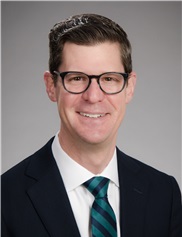Grants Funded
ASPS/PSF leadership is committed to continuing to provide high levels of investigator-initiated research support to ensure that plastic surgeons have the needed research resources to be pioneers and innovators in advancing the practice of medicine.
Research Abstracts
Search The PSF database to have easy access to full-text grant abstracts from past PSF-funded research projects 2003 to present. All abstracts are the work of the Principal Investigators and were retrieved from their PSF grant applications. Several different filters may be applied to locate abstracts specific to a particular focus area or PSF funding mechanism.
Surgical Education to Enhance Patient-Centered Communication
Jeffrey Friedrich MD
2021
University of Washington
ACAPS/PSF Research Grant
Education, Hand or Upper Extremity
Project Summary: The overall goal of the proposed project is to teach interpersonal communication skills to surgical trainees using the specific clinical scenario of upper extremity amputation, and to utilize information from the patient perspective to guide the training in this core competency. A combination of instructional lecture videos, podcasts about the patient experience, web-based case presentations, and quick reference guides will be integrated to create a communications curriculum using upper extremity amputation as the backdrop. Once these educational efforts are implemented, multiple assessments will be utilized to guide curricular changes. The various educational platforms will be scrutinized for usage, and trainees will undergo pre- and post-training assessments. Simultaneously, patient satisfaction data regarding communication about amputations will be obtained throughout the year-long time frame of the project. Additional information on the patient perspective will be obtained from focus group interviews of patients who have undergone upper extremity amputations. Data gained from these interviews will be recorded and analyzed for common themes. The information obtained from patient surveys and interviews will be incorporated into the communications curriculum described above, thereby closing the feedback loop. This innovative approach ensures a patient-centric and evidence-based method for education that matches training to the needs of patients.
Impact Statement: This study will facilitate improvements in the care of patients with upper extremity amputations, which is currently a challenge for both patients and providers in that there are long-term functionality and body image concerns. Improvement in the qualitative aspects of clinical care will serve to improve care overall. Equally important are the potential benefits for both patients and future physicians as competency in interpersonal communications is developed. Interpersonal communication as a competency has long suffered from a lack of distinct educational efforts. With the proposed project, communication education will be formalized and standardized, thereby simultaneously improving surgical education and patient care.
 Jeffrey B. Friedrich, MD, MC, is a professor in the Division of Plastic Surgery at the University of Washington whose clinical practice includes adult and pediatric hand and wrist surgery, as well as complex lower extremity and urologic reconstruction. He is passionate about teaching and serves as program director of the UW Plastic Surgery Residency. His research interests center around surgical education, patient-reported outcomes, and patient/provider communication. He obtained a Master’s Degree in Communications from the University of Washington in 2017. He has held multiple leadership positions with the American Council of Academic Plastic Surgeons, the American Association of Hand Surgeons, the American Society for Surgery of the Hand, the Washington Society of Plastic Surgeons, and the American College of Surgeons.
Jeffrey B. Friedrich, MD, MC, is a professor in the Division of Plastic Surgery at the University of Washington whose clinical practice includes adult and pediatric hand and wrist surgery, as well as complex lower extremity and urologic reconstruction. He is passionate about teaching and serves as program director of the UW Plastic Surgery Residency. His research interests center around surgical education, patient-reported outcomes, and patient/provider communication. He obtained a Master’s Degree in Communications from the University of Washington in 2017. He has held multiple leadership positions with the American Council of Academic Plastic Surgeons, the American Association of Hand Surgeons, the American Society for Surgery of the Hand, the Washington Society of Plastic Surgeons, and the American College of Surgeons.